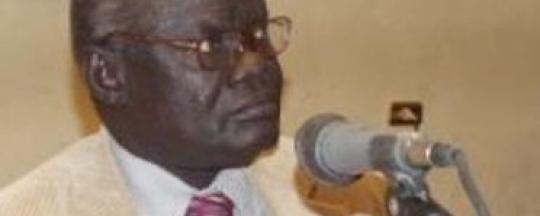A group of defected South Sudanese rebel officials have rejected a recently signed peace deal between the government of President Salva Kiir and the rebel faction under the former vice president, Riek Machar.
The group calling itself Federal Democratic Party and led by the former South Sudanese minister of youth, culture and sports, Gabriel Changson Chang, called on the Intergovernmental Authority on Development to adopt a new strategy in the peace process.
“We… believe that the IGAD must adopt a new strategy in the peace negotiation. We believe that in order to bring a lasting peace to South Sudan, all parties and stakeholders in the conflict must be included in the peace talks so that any agreement reached must be owned by South Sudanese,” the statement dated August 29, 2015 reads in part.
The statement criticized IGAD, an East African bloc, which mediated the end to more than 20 months conflict in the country, for allegedly restricting negotiations “to a few favoured clients are contrary to the spirit of peace” . IGAD, according to the statement, must allow open discussion of the root causes that triggered the conflict.
It expressed doubt whether president Salva Kiir and Riek Machar will be able to work together after failing to gain trust despite working for eight years in the same government.
“Both president and Dr.Riek Machar worked with each other for eight years and could not trust each other. It is doubtful whether these leaders will invent or generate any trust between them in the short period of transitional period. Due to this mistrust between the two leaders, it remains to be seen whether the Juba massacre will not repeat itself,” they said.
The agreement failed to recognize the Juba massacre, they said, calling this is very disappointing to the Nuer ethnic group in general and to the families of the massacred people in particular. “This shows lack of respect for the dead and the can heighten the sentiments that can threaten reconciliations and healing between the Nuer and the Dinka ethnic groups,” the statement argues.
The statement further added that an imposed peace will hardly change the attitude and behaviours of people involved the conflict, thus creating the need to involve other stakeholders in negotiations.
Photo: Changson Chang




